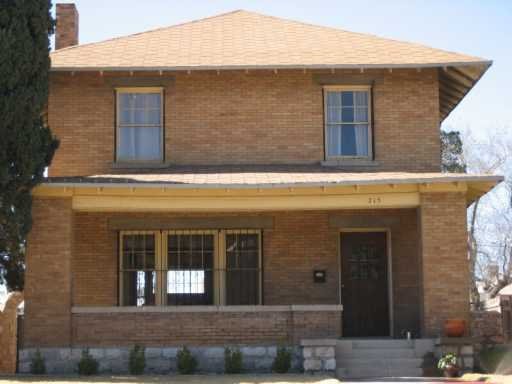I usually prefer talking about the positives of the el paso - juarez region, and so it may come off like I'm ignoring the elephant in the room. Media coverage on the drug cartel wars taking place in our sister city of Cd Juarez are nothing new. It is no exaggeration the wave of crushing violence that has plagued Juarez for the past two years. Most people are completely taken aback to learn that el paso is one of the safest large cities in the country. I don't get it either, but I hope we keep that designation.
El Paso fueled much national interest 100 years ago during the mexican revolution of 1910. It was not uncommon to find tourists observing the war taking place literally a mile or so from the tops of their downtown hotel. There is much intrigue to that era of our history. The current war takes on a much different feel. The high ideals of the revolution have been replaced with unsympathetic violence, seemingly without much thought or care for the innocent.
I came across an article in today's paper about the difference in loss of life between the revolution and the current cartel war. I think it helps put things in perspective about the severity of the violence.
100th anniversary: Mexican Revolution not even as deadly as Juárez now
By Daniel Borunda / El Paso TimesPosted: 01/22/2010 12:00:00 AM MST
Juárez is deadlier now than during the Mexican Revolution, a border history expert said Thursday. Oscar Martinez, a history professor at the University of Arizona, gave the first in a series of lectures at the El Paso Museum of History marking the 100th anniversary of the Mexican Revolution. Martinez said he is often asked about casualties in Juárez during the revolution compared with the current violence. The conservative estimate is that about 300 people died in battles in Juárez during the entire Mexican Revolution of 1910, he said.
"The important thing is the total number is only a fraction of the people killed in the last three years in Juárez," Martinez told an audience of more than 70 people at the museum. "It's a catastrophe. And that is no revolution going on. It is a civil war between cartels." About 4,000 people have been killed in Juárez since 2008. Law enforcement officials have said that current violence in Juárez is part of a war between the Sinaloa and Juárez drug cartels for control of a lucrative smuggling routes into the United States.
Martinez, an El Paso native, teaches courses on the history of Mexico, the history of Mexican-Americans and the border. He has written several books. Martinez's lecture on Thursday was an over view of the revolution.
Sue Taylor, senior education curator at the museum, said more events linked to the Mexican Revolution would take place at the museum throughout the year. The lectures are sponsored by a grant from Humanities Texas. Martinez said cities on the U.S.-Mexico border like El Paso played an important role during the revolution, which altered Mexico politically, socially and culturally. And no city was more important than Juárez. "Ciudad Juárez was always on center stage in that decade. Ciudad Juárez was the prize city on the border," Martinez said.
The revolution was fueled by several factors, including resentment of the masses toward a corrupt elite that dominated Mexico. The revolution gave rise to changes that bore fruit decades later, Martinez said.
The next lecture, on Feb. 18, will focus on the African-American experience during the Mexican Revolution.
Friday, January 22, 2010
Subscribe to:
Post Comments (Atom)



2 comments:
Omar, Can you post the next article in the series when it comes out? My family on my Mom's side is an old EP African-American family that moved out west in the 1940s. My great aunt taught at Douglass High, and my Mom, aunts and uncles were students there. I visited once when I was a child. I would love to know some more about the history. Thanks, and keep up the good work on the Foursquare!
Hi yolanda,
Good to hear from you -- very interesting family history. The african american community in el paso does have a history that stretches farther back than many would realize. I'll keep an eye out for future articles on this and may post about the history of douglass school in the future. Thanks for stopping by! :)
Post a Comment